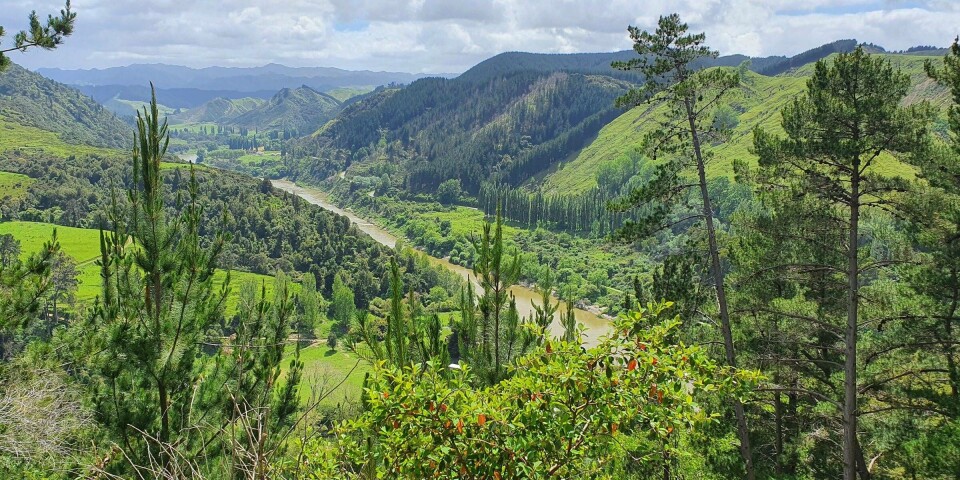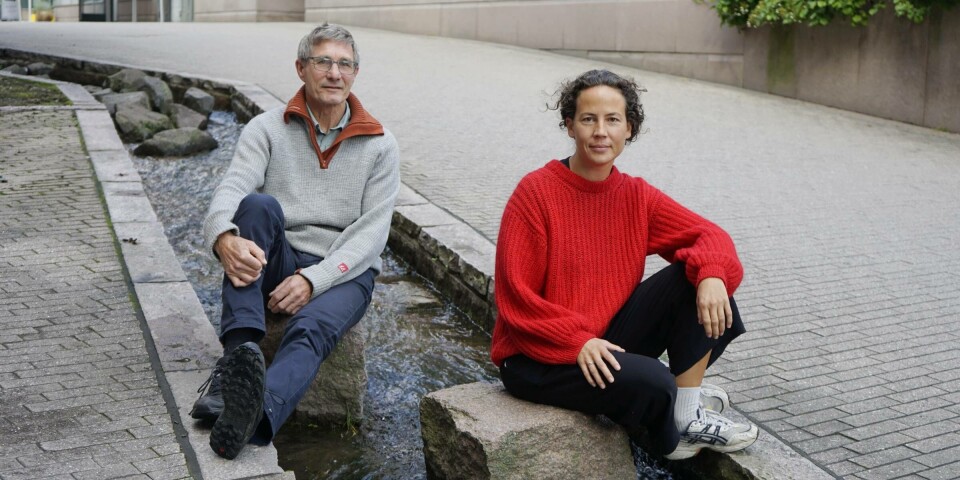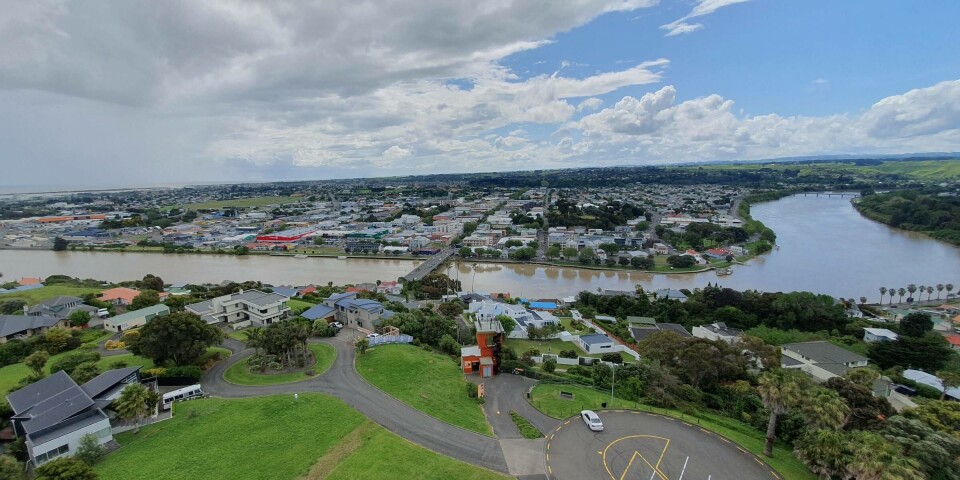THIS CONTENT IS BROUGHT TO YOU BY Oslo Metropolitan University - read more

What happens when rivers are given rights?
Researchers have looked at what happened when rivers were granted status as legal persons. Particularly in New Zealand, they see promising developments in indigenous peoples’ rights and living conditions.
There was something of a revolution in our understanding of rivers about eight years ago. Rivers in Colombia, New Zealand, and India were granted what is called ‘legal personhood.’
This means that the rivers were given the status of a legal entity with their own rights and obligations. In many ways, the rivers were granted the same rights as a person.
“Many people have claimed that these legal innovations provide a new form of protection for the environment that is more in line with indigenous peoples’ ways of life,” says Axel Borchgrevink.
He is a social anthropologist and professor at the Oslo Metropolitan University's Department of International Studies and Interpreting. He has led the research project.

“This is a step in the right direction both to ensure nature’s rights and to rethink the relationship between people and nature,” says Borchgrevink.
Different outcomes
“But we have also found that the impact of granting rivers legal personhood depends in practice on systems that ensure that the river’s rights are respected. There are many obstacles still to be overcome,” he says.
The researchers have examined how the rivers’ status as legal persons has been implemented in practice. The three countries are very different in terms of governance and culture, and the decisions have had very different outcomes.
“It turns out that how the management of the river is organised and who can participate in decision-making processes are just as important as granting rights to the rivers,” says Malene Karensdatter Brandshaug.
She is a social anthropologist at the Oslo Metropolitan University and has participated in the project.
New Zealand: Groundbreaking in respect of indigenous rights
The Whanganui on the North Island is New Zealand’s third longest river. For the Māori who have lived along the river for 700 years, it is more than just a river. They regard the river as an ancestor, from whom humans are descended. It has also been an important source of food through fishing, especially for eel.
The construction of a hydropower plant in the neighbouring watercourse and runoff from agriculture have over time damaged the water quality and reduced the water flow in the river. Fish stocks have also declined.
The local Māori population have been in talks with the authorities on the management of the river for many years.
“The Act that gives the Whanganui River the status of a legal person is, in practic,e a recognition of Māori claims that go back at least 150 years,” says Borchgrevink.

Since the introduction of the Act, the local Māori population has regained some of the control they had over the area before the British colonised the country in 1840.
According to the Act, all councils and committees that make management plans for the river must include Māori representatives. When development or other measures that could impact nature are proposed, they are always included in the discussions.
A close connection between people and the river
Borchgrevink believes that these local democratic principles within the law are what give it real significance.
In his opinion, this Act is groundbreaking in terms of indigenous rights and may help prevent future interventions in nature. He also believes the law will play a decisive role when the agreement with the power company that operates the water plant nearby is to be renegotiated.
Some researchers have raised objections that the concept of riverine rights may spark conflicts between natural rights and human rights.
“What we've seen in our research is that, on the contrary, it's probably primarily people’s rights that will be strengthened by this move,” says Borchgrevink. “At the same time, it aligns with the Māori's views of the close connection between people and the river.”
Colombia: No impact on pollution
In Colombia, illegal gold mining for many years has resulted in the Atrato River being contaminated with mercury. This has caused major health problems for the inhabitants of the villages along the river. In 2015, they took legal action against the authorities.
In 2016, the Colombian Constitutional Court declared the Atrato a legal entity with rights, also stating that the pollution of the river was a violation of these rights.
“Unfortunately, there has not been any less pollution or fewer health problems since the legislation was passed,” says Borchgrevink.
The Colombian legislation has not been followed up with funding for necessary measures. Furthermore, armed groups control several areas, preventing the government from stopping the illegal gold mining.
India: Ambiguities in the judgment
The situation in India is different again. Here, it was a judge in the Uttarakhand High Court who managed to get a court decision passed granting the Ganges and its main tributary, the Yamuna, legal personhood.
However, even though the Ganges originates in Uttarakhand, it runs through multiple states and continues into Bangladesh. Some 800 million people live along the river, and most of them do not live in Uttarakhand.
“In this case, there are obvious issues related to jurisdiction, and it has been questioned whether a state high court judge was entitled to make this decision,” says Borchgrevink.
Additionally, other ambiguities in the judgment resulted in it being appealed to the Indian Supreme Court, which has stayed the judgment. As a result, the law is currently suspended and is currently not in force.
“Part of the problem in India was that the initiative came from a judge, without there really being any pressure from the grassroots, or any social basis for the idea of legal personhood,” he says.
Borchgrevink is not surprised that the case has reached a stalemate.
Relevant in Norway too?
Malene Karensdatter Brandshaug is currently researching environmental conflicts related to rivers and fjords in Norway. She says that the concept of riverine rights is starting to take hold in many places around the world.
“Loads of initiatives have popped up all over the world, on every continent,” she says.
These initiatives can emerge from grassroots movements, individual legal experts, or government authorities.
In Norway's capital Oslo, there is even an initiative to grant Akerselva and the Oslofjord legal personhood.
“It's the only initiative in Norway that we're aware of so far,” she says.
Brandshaug believes that the phenomenon currently still feels a little foreign to the Norwegian environmental movement.
“If this were part of the broader public debate, it might have had a different outcome to what we have seen so far,” she says.
References:
Cribb et al. Beyond legal personhood for the Whanganui River: collaboration and pluralism in implementing the Te Awa Tupua Act, The International Journal of Human Rights, 2024. DOI: 10.1080/13642987.2024.2314532
Macpherson et al. Where ordinary laws fall short: ‘riverine rights’ and constitutionalism, Griffith Law Review, vol. 30, 2021. DOI: 10.1080/10383441.2021.1982119
McNeish, J.A. & Socha, J.M. Muddy waters: on the problematic political ecology of the Atrato ruling, Colombia, The International Journal of Human Rights, 2024. DOI: 10.1080/13642987.2024.2324121
Upadhyay, K. & Nayak, B. Tracing the legal journey of petitions in the Uttarakhand High Court that became springboards for rights of rivers and nature in India, The International Journal of Human Rights, 2024. DOI: 10.1080/13642987.2024.2380850
———
Read the Norwegian version of this article on forskning.no

This content is paid for and presented by OsloMet
This content is created by Oslo Metropolitan University's communication staff, who use this platform to communicate science and share results from research with the public. Oslo Metropolitan University is one of more than 80 owners of ScienceNorway.no. Read more here.
More content from OsloMet:
-
Ukrainian refugees need jobs. So why aren’t more of them being hired?
-
The mural in Oslo City Hall conceals a dramatic story – about the artist’s own life
-
Mental health problems are widespread among Ukrainian refugees
-
Only 1 in 10 Ukrainians want to return
-
How class divisions are maintained in Norway
-
Many adolescents think they're not interested in politics – until a teacher gets them to reflect on their own lives




































